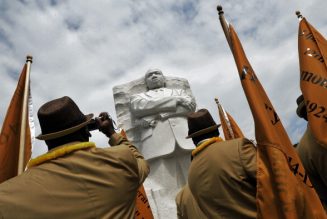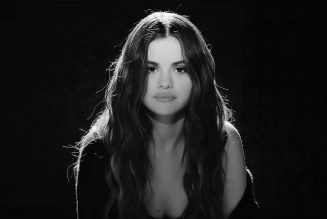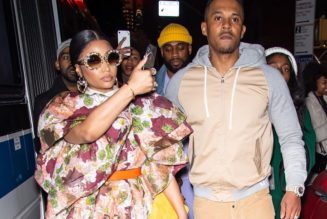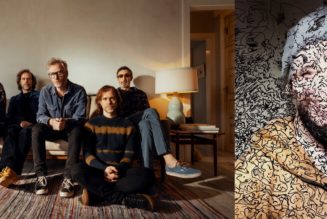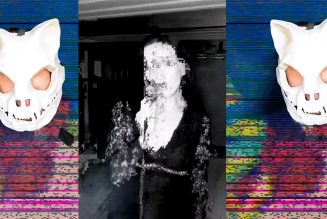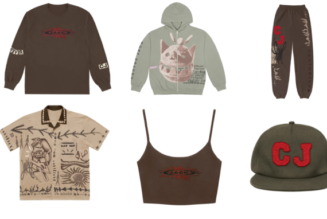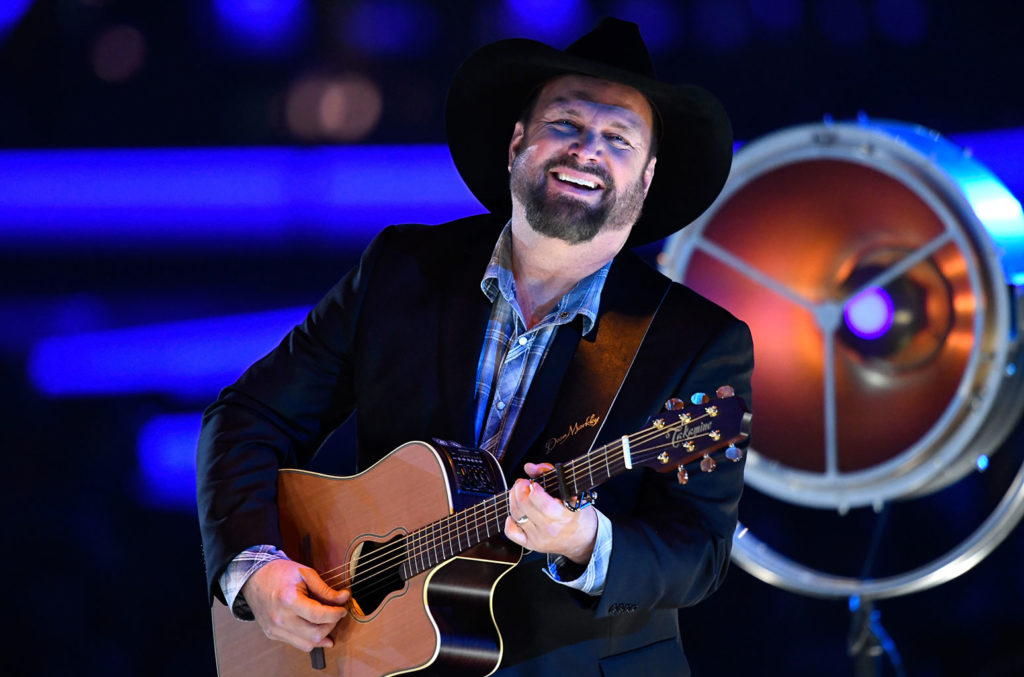
Brooks will break out of his pandemic bubble to receive the coveted Icon Award in Los Angeles at the Billboard Music Awards, which air Wednesday, Oct. 14, on NBC. He joins such past recipients as Janet Jackson, Mariah Carey and Jennifer Lopez.
Ever since he broke through in 1989 with first single “Much Too Young (To Feel This Damn Old)” — he was 27 at the time — the Oklahoma native established a new kind of superstar: Someone who broke sales and attendance records at seemingly every turn, yet stayed down to earth and approachable. And, above all, grateful. “My hardest day of work in this business never felt like work,” he says.
Brooks, 58, has sold 159 million albums, making him the No. 1-selling solo artist in U.S. history, according to the Recording Industry Association of America. He is also the only act to have nine albums certified by the RIAA for sales of more than 10 million each. He is also the only country performer to have charted songs on Billboard’s Hot Country Songs chart in five successive decades — the ‘80s through the ‘20s — most recently with “Dive Bar” with Blake Shelton.
When the pandemic hit, Brooks — who has been named CMA entertainer of the year a record seven times (he took himself out of further contention this year) — was in the second year of a three-year North American stadium tour that has set records at nearly every stop.
At Wednesday’s Billboard Music Awards, Brooks and his band will perform a medley encompassing his career. He cryptically adds “we’re bringing an audience with us,” but declines to give more details.
In an expansive interview, Brooks revisited career milestones, but also looked ahead: His next studio album, Fun, will come out this fall, as will Triple Live, which had previously only been available as part of The Legacy Collection box set. He also revealed why he’s never running for president and hinted about his future involvement with two Chrises: actor Chris Pratt and his former alter ego Chris Gaines.
What do you remember about the first time you stepped into Jack’s Tracks recording studio with producer Allen Reynolds to record 1989’s self-tilted debut album?
I remember Allen stopping me. All of a sudden I had a new voice kind of thing. He said, “What are you thinking?” I said, “I’m thinking somewhere between George Strait and name anybody that’s just a crooner like Sinatra.” He said, “There’s already one of each of those guys and nobody’s going to do it better. Just be yourself.” That was probably the big thing for me on that first album.
Before “The Dance” from the album launched your career into orbit, you hit No. 1 on the country chart with your second single, “If Tomorrow Never Comes.” How much did it mean to you that you co-wrote your first No. 1?
Oh, the fact that you write it or not means absolutely zero to me. You can’t out-write this town, so don’t even try. You’re committing career suicide if you try, because there are so many great writers. Don’t care whose name’s on them. You’re looking for songs that say what you feel.
Your voice was much twangier on that first album than on subsequent albums.
I think it was just from coming straight out of the honky tonks of Oklahoma. …“The Dance” sound like it’s elongated, like “The Daynce.” You’re hearing yourself for the first time. That first album has all those great, innocent kind of things on it that over time, just like yourself, have evolved, whether it’s good or bad.
Were you worried about sophomore slump with 1990’s No Fences?
No, because we cut No Fences and Garth Brooks almost together. Where the sophomore jinx for me came in was [1991’s] Ropin’ the Wind. I was scared to death that album wasn’t going to do jack compared to Fences.
You were playing “Friends in Low Places” from No Fences on the road at least a year before it became a single. How soon did you know it was going to be a career song for you like “The Dance?”
You play it in clubs and see the response, you thought, “Holy cow, this is going to be a fun ride.” Now would I have ever dreamed it would be what it was? No. That thing is almost like — and forgive me if this sounds egotistical — a franchise song, like “Margaritaville” was to Jimmy Buffet. I just feel very lucky, because it went through hell or high water. It took forever to get it out. And then, at the last second, another artist [Mark Chestnutt] had cut it, and we were lucky to get it out.
In relatively short order, you went from every label initially passing on you, including Capitol Nashville, to being a superstar. When did you feel you’d made it?
Coming out of the hole at Central Park, seeing all those people. I’m going, “Holy crap.” That was the first time that it ever hit me that there was something going on that might’ve been a little more than what you dreamed of.
You’re saying selling out Texas Stadium several times, touring internationally, and having albums top the charts for nine years didn’t make you realize how popular you were? It wasn’t until more than a million people came to see you in New York’s Central Park in 1997?
What happens was, we sold out Texas Stadium. I can’t remember how many nights we did that, but New Kids on the Block did that. Everything that you were doing, somebody else had already done it. But Central Park… you knew Simon & Garfunkel. They’re the gods. To see the North Meadow [where Brooks played] as compared to the Great Lawn [where Simon & Garfunkel played] and to see people farther than you could see, that was the first time it was like, “Holy sh–,” and then you got back to the hotel and they tell you HBO did a higher rating in the New York area [airing the concert live] than the Super Bowl. That’s fricking crazy. So I think that was the day [the band and I] kind of looked at each other and went, “Wow.” But it’s still the same guys — a bunch of misfits out of Oklahoma and Kansas.
In 1991, Billboard switched its chart methodology to the more accurate SoundScan data, and Ropin’ the Wind becomes the first country album to debut at No. 1 on the Billboard 200. It instantly lifted you and country music in general. What were your thoughts when you heard?
I’m not really sure I even understood the achievement, because SoundScan was so new. The pop charts, which is what the Billboard 200 was [referred] to then, was only known as pop music, so I wasn’t sure if that was a good thing or not for me. But then when I realized this whole SoundScan thing was finally showing what the audience was out there, which was predominantly country music fans, that made me very proud and I felt very lucky to be the first guy there.
Why were you worried that Ropin’ the Wind wouldn’t “do jack”? It ended up with three No. 1s.
We were surprised, because the songs weren’t No Fences. They weren’t “The Thunder Rolls” or “Friends in Low Places.” We had “The River” for five years before Ropin’, so I didn’t think that song was as big as people were going to make it. I was scared to death “Shameless” was going to be too not country for country and, man, country radio ate it up. I was really surprised.
Were you ever as wrong about a song of yours as you were about “The River”?
We almost didn’t cut “The Dance” because I was scared it wasn’t country enough. Allen said, “If you don’t cut ‘The Dance,’ it will be the biggest hit you never had.”
The first single from 1992’s The Chase, “We Shall Be Free,” peaked at No. 12, breaking your string of 13 consecutive top 10s. Did you fear the message might be too progressive for country radio at the time? Were you surprised by the backlash?
You get caught up into the numbers, but the truth is this: You never care about it. I’m not running for president, so I don’t care what people as a whole think of me as an artist. What I care about is, is this music that I’m getting to be a part of changing somebody’s life for the better? If you start trying to please everybody, then you’re just going to water yourself down. I didn’t expect the backlash I got from “We Shall Be Free” because it was just common sense. But yeah, man, here it comes. People going, “Don’t preach to me,” and I’m going, “Oh sh–, I didn’t feel like I was preaching.” I just did a real feel-good song that was inspired off of what I was feeling pulling out of Los Angeles following the Rodney King verdict and watching those fires and going, “Hey, man, everybody just settle down for a second and focus on loving one another.” … The Chase, by far, is my most sentimental favorite, just because it got the sh– kicked out of it and you protect it like it’s a child.
You said you’re not running for president. Is it too late to change your mind?
[Laughs] Trust me, no one would know which way to go with me because I am so both. I really am “Let’s love one another, but don’t forget we’re the defender of freedom all around the world, so let’s beef up.” People don’t think you can do both. And that’s right down my alley. That’s why you can have “We Shall Be Free” and “American Honky Tonk Bar Association” at the same concert. Let’s love one another and let’s pull our own weight.
The LGBTQ community embraced you because they interpreted “We Shall Be Free” as support for gay rights with the line “when we’re free to love anyone we choose.”
That line was about everything from interracial marriage and marriages crossing religions to same-sex marriages. If you truly love somebody, that’s what I’m hoping, as a child of God, that we’re doing. That whole line was just about, “C’mon, man, see past the walls and love each other.”
With songs like “Callin’ Baton Rouge” and “American Honky Tonk Bar Association,” 1993’s In Pieces feels like it was destined to be played live. Was that because you were on the road constantly?
100%. Everything in my life had gone up in volume. Everything was louder. Everything was faster, quicker. And Allen noticed it. It’s probably the most live record we’ve done. [Engineer] Mark Miller said it best: An artist should reveal who they are at the time they’re making an album. I was living on the road. It couldn’t have been more than a few days out of the year that we were home. The rest of it was out on the road, onstage, with the guys that you started this whole thing with and just turning it up way too loud.
That album hit No. 1 in the U.K. Though you’ve toured internationally, you seem like a uniquely American artist. How do you see yourself?
You have an artist that has very American-based music. When they say, “Hey, man, take your [pedal] steels and fiddles off, we’re going to Europe.” It’s like, “Is it no longer country music?” We would never do that. I know our stuff is very here, very American. And when I say American, I’m not talking red, white and blue. We’re very North American. I’m stunned how Canada is a place that I feel we could play the rest of our lives and people treat us like they do here in the States.
Your music is not jingoistic.
I’ll do my patriotism pretty much the way I’ll do my belief in God. People say, “Are you ever gonna make a gospel record?” and I say, “I don’t feel worthy of getting to do one.” So my songs like that are “Unanswered Prayers” and “The River.” Same way with patriotism. I’m not going to shove it down your throat, but I don’t think you have to be around me long to realize that I feel lucky to to live where I live.
You wrote eight of the 10 songs on 1995’s Fresh Horses. Do you consider it one of your most personal albums?
We took a year off after the [three-year] world tour. We just burned out. Sandy and I are having trouble in our marriage. I’ve got a 2-year-old and a new baby. The reason why most of those things were written [by me] is because I was the only guy that I was around in ’95. I just kind of secluded myself.
Even though Fresh Horses came in at No. 1 and had several hits, you were having issues with your label and felt they’d bungled the release. In 1996, you showed up unannounced at Fan Fair [now CMA Music Fest] and signed autographs for 23 hours straight. Was that because you were worried that the label no longer cared about you?
Well, I wanted to find out who was right. I’m getting the message from my own record label, “Hey, Garth, great run, but it’s over.” And I’m like, “The people have always been the boss as far as I know, so I’m just going to go out and ask them.” I got my answer the first hour, [but] by the time the line was there, I owed it to those people to stay with them. I don’t know if I could have lived with myself if I’d left people there. It was a great day for me. I don’t think I could physically ever do it again, but I gotta tell you that that was one of those things that turned your whole ship around.
On a broader level, you had a tough renegotiation with Capitol Nashville in 1992 and other scraps with them, including holding up the release of Sevens for months after it was supposed to come out with the Central Park concert in 1997. You have always stood up for what you felt was right, even if it hurt you. In hindsight, do you see any of the fights as ones you wish you hadn’t fought?
No. I see the fights as ones I wish I didn’t have to. But what I’ve loved about the three or four major fights that I’ve had with my label is at some point, somebody from the label from that era will say, “Whether he was wrong or right is not what I’m going to answer. What I’m going to answer is he was doing what he felt was best for him and the music.” That makes me have a ton of respect for them, and I hope that they feel the same way back.
In 1999, you followed Sevens with Garth Brooks in…The Life of Chris Gaines, a greatest-hits album for a fictional character that was supposed be the soundtrack for a movie about Gaines. Any thoughts about reissuing the album, which is chock-full of great pop songs? You let the 20th anniversary come and go last year.
Trust me, it’s got a whole life of its own and it’s all coming. It won’t be anything predictable, I can guarantee you, because that’s kind of what that character’s thought process was.
So we haven’t seen the last of Chris Gaines or that album?
If you know the greatest hits, they had to come from somewhere, if that tells you what’s coming.
Scarecrow, which came out in 2001, was your last album for Capitol Nashville. It was your first album not to have a No. 1 on Country Airplay and your first album post-divorce. How do you look back at this one?
This is another one where the label was kind of just upside down. When we said, “Hey, guys, we’re having trouble here,” they brought us down a guy [from New York] to run our part of it. Everything went fine with Sevens and [1998’s] Double Live. Then when Pat [Quigley] left [as Capitol Nashville president], the guy [Mike Dungan] coming in was a sweet guy, [but] he wasn’t used to the numbers of the spend. Ours was a totally different level of attack, marketing, everything. It just overwhelmed a lot of people. I announced my retirement before I made that record. I remember looking at Mike Dungan and going, “This guy makes you want to make music,” so I enjoyed getting to make Scarecrow. There are many good songs on that record, like “Rodeo or Mexico,” that never saw the light.
Other than assorted shows and your Las Vegas residency, you took off 13 years to raise your daughters, returning in 2014 with a new three-year North American tour and new album, Man Against Machine. How had your approach to making music changed?
I don’t think it changed that much, but how music is distributed, discovered — everything after that process — had changed. So that was the whole Man Against Machine kind of thought. I think Man Against Machine might be the only record in our career that has a song on it that is the title of the album.
This is our comeback kind of tour, so I didn’t know how many chances I’d get to make this album. … This was the album where probably the most singles were left on the album. We signed with Sony Records, and they had just lost their captain of their ship in Nashville. So the label, full of great people, was kind of left without a rudder. So that kind of scared you a little bit. Songs like “Midnight Train,” “Cold Like That,” “Tacoma” … Oh my gosh, they were huge radio singles for me that never, ever got pitched. … The Shawshank Redemption says it best: “A good thing never dies.” So the whole thing is, capture the music the first time so, hopefully, even after you’re dead, this music will stand up when it gets a chance.
You have a deal with Amazon Music for streaming but have kept your music off YouTube, Spotify and Apple because of the rates they pay or disagreements with how they operate. Why?
The last thing I’m going to do is be part of what you fight, and that is that music is disposable; I don’t believe that. That songwriters don’t deserve to get paid; I do not believe that. That songwriters deserve to get paid the rate they’re getting paid on, like,YouTube; I don’t believe that. I’m sorry. If that makes me an old guy or uncool, I’ll wear that label proudly.
Do you feel limiting your availability on streaming services keeps younger kids from discovering your music?
I’ve never really thought about age at all. All I know is you make the best record you can, you stick to what you believe in. I can’t remember the crowds being as young as they are, especially in Canada. Every 10th person was a child that was 9 or 10 years old. So I find that they find it, if it’s worth looking for.
That brings us to Gunslinger, which came out in 2017, on your own imprint. Unlike Man Against Machine, where you only co-wrote two songs, you co-wrote nine tracks on this one. Why did you write so many of the songs?
Then, [music] was heavy into y’all-ternative or Bro Country. A lot of it was loop-driven. As much as I may like some of that music, it’s just not me. So it was a little tough to find music [from outside writers] during that album that fit me.
You and wife Trisha Yearwood have recorded a cover of “Shallow” from A Star Is Born for Fun. Is there a movie-themed album in your future? Between that and the songs you’ve done for movies and Trisha singing “Somewhere Over the Rainbow,” you’re halfway there.
You know, Chris Pratt keeps talking about doing something together. I know his idea is some kind of movie-themed thing. Whether that comes to fruition or not, I don’t know.
He’s talked about a “top-secret” project you two are working on. What else can you say?
In Chris Pratt’s world, in movie world, I don’t know what I can say and what I can’t. All I know is, I love him to death and I don’t want to do anything to jeopardize that, so I’m going to stay quiet and let him do the talking.
When the pandemic hit, you were a third of the way through your three-year stadium tour. How have you handled being off the road?
The blessing in this curse is my love [tears up] for getting to play music goes so beyond anything that’s got to do with making money. You kind of need to find that out, because in this business, they overpay you. I miss it so badly. I miss the people. I miss the band and crew. But I miss what happens when the people and the band and crew all get together. That beautiful two hours. It feels like three minutes. It’s just fabulous.
You didn’t tour for more than a decade while you were raising your daughters. Do you miss it more now than then?
Yeah. You can’t miss it then, because you’re trading it to be a dad that’s there 24/7. For me, it’s is better than it’s ever been, and to then put a halt on it… If it wasn’t for the well-being of other people, I’d be going crazy.
Offstage, you are fairly quiet. What happens between the walk from the dressing room to the stage for you?
If you like hot chocolate as a powder, watch what happens when you add water to it. And that’s me. All the way until you step into the elevator [under the stage], all the way up until that thing starts rising, I just feel like a dopey old, heavy kind of kid from Oklahoma who got lucky to get to do this. But once they see you, then all of a sudden they, like, put a cape on you and you believe you can fly.
If there’s one through line in your whole career with your fans, it has been about connection, even now with your weekly Facebook chat, Inside Studio G. It feels like after all these decades, you’re still just looking for a way to connect.
Well, aren’t we all? Connecting makes us throw off our defenses. So especially in this time where Republican versus Democrat, color versus color, I think what we all want when we look across at somebody else is to know I’m safe with this person and this person loves me and I love them. That’s connection. So add music to it, sure, but I think I’ll spend the rest of my life looking for connection.

